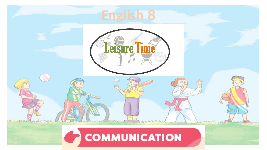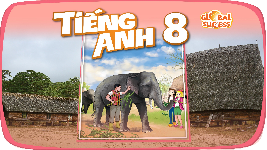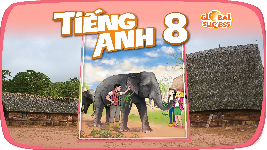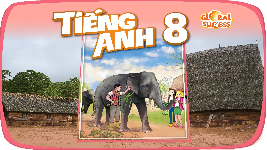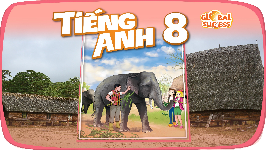

















Preview text:
Uni 6 LIFESTYLES t
LESSON 2: A CLOSER LOOK 1 1
LESSON 2: A CLOSER LOOK 1 WARM-UP Matching game (Task 1) Vocabulary
Task 2: Complete the sentences with the words and phrases VOCABULARY from the box.
Task 3: Choose the correct answer A, B, or C to complete each sentence.
Task 4: Listen and repeat the words.
Task 5: Listen and practise the sentences. Underline the PRONUNCIATION
words with the sound /br/ and circle the words with the sound /pr/. Wrap-up CONSOLIDATION Homework WARM-UP Match the words to the suitable pictures DOGSLED MAKE CRAFTS MATCHING GAME NATIVE ART WEAVE TRIBAL DANCE WARM-UP dogsled make crafts native art weave tribal dance VOCABULARY dogsled (n) /ˈdɒɡsled/ a sledge pulled by dogs VOCABULARY make crafts (v) /meɪk krɑːft/ make things with your hands in a skilled way VOCABULARY tribal dance (n) /ˈtraɪbl dɑːns/ a dance performed by tribal people based on their customs and beliefs VOCABULARY native art (n) /ˈneɪtɪv ɑːt/ the artwork created by the original native people VOCABULARY New words Pronunciation Meaning 1. dogsled (n) /ˈdɒɡsled/ xe trượt tuyết chó kéo 2. make crafts (v) /meɪk krɑːft/ làm đồ thủ công
điệu nhảy của bộ tộc, 3. tribal dance (n) /ˈtraɪbl dɑːns/ bộ lạc tác phẩm nghệ thuật 4. native art (n) /ˈneɪtɪv ɑːt/ bản địa VOCABULARY
2 Complete the sentences with the words and phrases from the box. tribal dances weaving dogsled making crafts native art
1. The traditional craft of the villagers is _________ bamboo baskets.
2. We all joined in the ______________ when we attended the local festival.
3. The gallery in the city centre has an excellent collection of ___________.
4. Hoa is very keen on _____________. She loves to knit gloves after school.
5. The _________ is still used as a means of transport in Alaska today. VOCABULARY
3 Choose the correct answer A, B, or C to complete each sentence.
1. The tribal women know how to ______ these threads into beautiful clothes. A. weave B. make C. cut
2. She comes from Korea, so her ______ language is Korean. A. modern B. native C. practical
3. Sticking out one’s tongue was a way of greeting in ______ Tibetan culture. A. traditional B. leisurely C. simple VOCABULARY
3 Choose the correct answer A, B, or C to complete each sentence.
4. How do people ______ New Years in your country, Jack? A. practise B. keep C. celebrate
5. We like that restaurant: it ______ very delicious food. A. practises B. serves C. buys PRONUNCIATION
4 Listen and repeat the words. Pay attention to the sounds /br/ and /pr/. /br/ /pr/ bridge present broccoli practise breakfast precious algebra programme celebrate express PRONUNCIATION
5 Listen and practise the sentences. Underline the words with the sound /br/ and
circle the words with the sound /pr/.
1. My brother says online learning improves our IT skills.
2. Santa Claus brings a lot of presents to children.
3. She briefly introduced the new programme.
4. He spent a lot of time preparing for his algebra test.
5. My mum prays at the temple before breakfast on Sundays. CONSOLIDATION 1 Wrap-up
What have we learnt in this lesson?
Vocabulary: The lexical items related to Lifestyles
Pronunciation: How to correctly pronounce words that
contain the sounds: /br/ and /pr/ CONSOLIDATION 2 Homework Do exercises in the Workbook.
Website: hoclieu.vn
Fanpage: facebook.com/www.tienganhglobalsuccess.vn/
Document Outline
- Slide 1
- Slide 2
- Slide 3
- Slide 4
- Slide 5
- Slide 6
- Slide 7
- Slide 8
- Slide 9
- Slide 10
- Slide 11
- Slide 12
- Slide 13
- Slide 14
- Slide 15
- Slide 16
- Slide 17
- Slide 18
